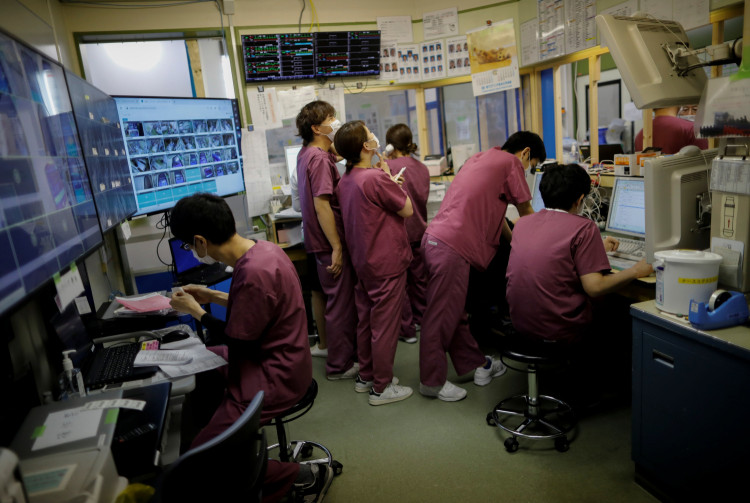China and South Korea continue to see signs that the two countries have flattened the curve in new coronavirus cases, but other Asian nations have yet to contain the virus that has infected millions around the world.
Zero New Local Transmissions in Mainland China
The Chinese National Health Commission on Tuesday revealed that there were no locally transmitted COVID-19 infections in the mainland on Monday, marking an apparent downtrend in the rise of new cases, Xinhua reported.
Furthermore, the commission announced that the mainland also saw no new fatalities as China continues to recover from the coronavirus crisis that locked down ground zero Wuhan in January.
Only one confirmed COVID-19 case was reported in the mainland on Monday and it was imported. As of Monday, China has logged 82,881 confirmed coronavirus cases and 4,633 deaths.
South Korea: No New Domestically Transmitted Cases for 2nd Straight Day
For the second day in a row, South Korea saw zero no locally transmitted COVID-19 infections, and three new imported cases.
According to the Yonhap News Agency, the new figure also marks the sixth consecutive day that the country reported new cases lower than 10. The country now has a total of 10,804 confirmed coronavirus cases, as confirmed by the Korea Centers for Disease Control (KCDC).
The news came as the government prepares schools for reopening in gradual phases starting next Wednesday. Health minister Park Neung-hoo noted that the gradual reopening of some establishments does not mean South Korea's COVID-19 battle is over.
As of Monday, the country saw two additional deaths from the fast-spreading disease, bringing the national fatality toll to 254.
South Korea is one of the countries leading the way in widespread coronavirus testing. So far, it has completed 640,237 tests.
Abe Acknowledges Japan is Behind in Testing
Upon announcing the extension of the nationwide state of emergency in Japan, Prime Minister Shinzo Abe went on to admit the fact that his country is behind in testing people for potential COVID-19 infection, Nikkei Asian Review reported.
Abe's admission came after an expert panel under the Japanese government revealed that Japan has conducted only 187.8 tests per 100,000 people, as opposed to over 1,000 tests per 100,000 people carried out by other economies at par with the island country.
Experts noted that inadequate testing made it more difficult for the government to start reopening the economy despite already massive losses in production.
While other countries in Asia already set up exclusive government panels to steer the country around the coronavirus crisis sometime in January, Japan only established its own anti-coronavirus panel in late February.
As of Monday, Japan registered a total of 15,078 confirmed COVID-19 cases and 536 deaths. The country saw one of the world's early biggest clusters from the Diamond Princess cruise ship.
Singapore Includes Remdesivir in Clinical Trials
Singaporean doctors have started using remdesivir, an experimental drug for Ebola that was developed by Gilead Sciences, to treat COVID-19 patients as part of its clinical trials in determining the effectivity of certain types of drugs for coronavirus treatment.
According to Channel News Asia, the news came after the United States Food and Drug Administration (FDA) allowed remdesivir to be used for emergency purposes in severe cases.
The World Health Organization previously announced that the antiviral drug is one of the existing experimental drugs that show the most promising therapies against the novel coronavirus.
Singapore saw a resurgence in new COVID-19 infections over the past three weeks as multiple clusters were discovered in foreign worker dormitories across the city-state.
As of Monday, Singapore recorded a total of 18,205 confirmed coronavirus cases and 18 deaths.





